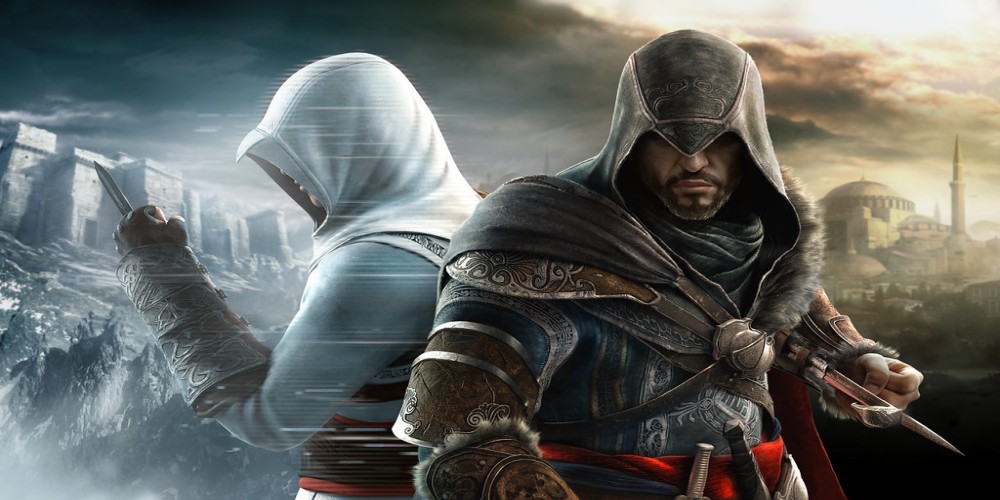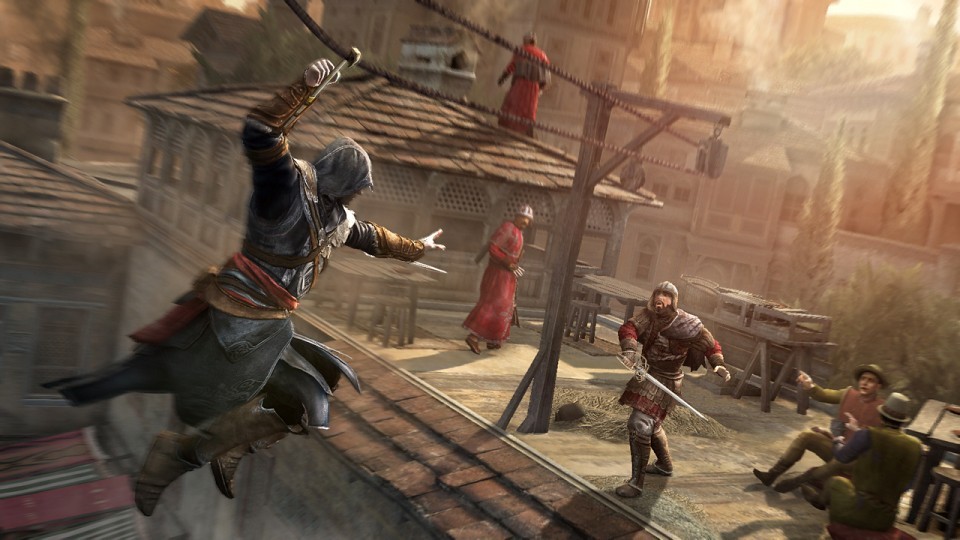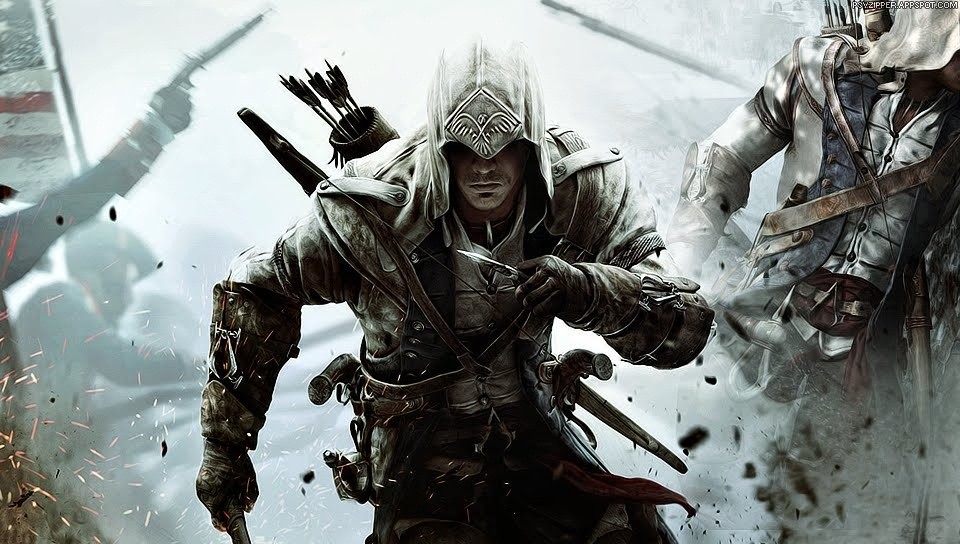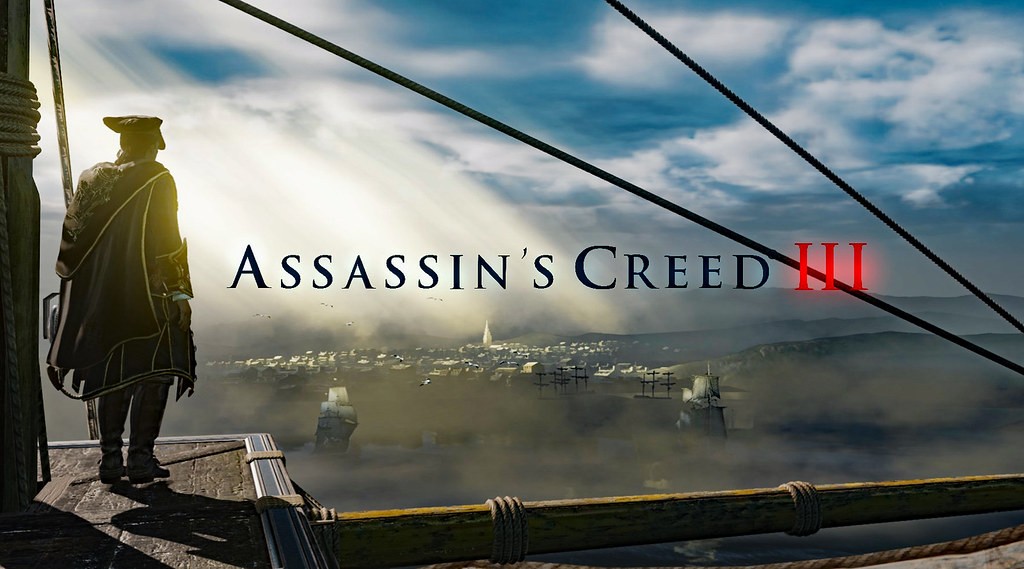The Definitive Ranking of Every Assassin's Creed Game: From the Birth of the Brotherhood to the Viking Invasion
- Oct 28, 2023
- 356

Embarking on a journey across time and space, the Assassin's Creed franchise has long been a staple in the gaming industry. With its intricate blend of historical fiction and action-adventure, each game in the series offers a unique exploration of different eras and characters.
The series has evolved significantly over the years, with games ranging from stealth-focused adventures to expansive open-world RPGs. However, not all of them are created equal. In this article, we will delve into the main series games, ranking them from the original Assassin's Creed to the Viking-themed Valhalla. Let's embark on this journey through time, and assess which games stand above the rest.
The Birth of the Brotherhood: Assassin's Creed

Assassin’s Creed, a blockbuster video game franchise developed by Ubisoft, has captivated the hearts of gamers across the globe since its first installment in 2007. Renowned for its meticulously detailed historical settings, compelling narratives, and complex gameplay mechanics, Assassin's Creed has an unparalleled allure that compels players to revisit its universe time and again.
The fundamental conceit of Assassin's Creed draws on an imaginative blend of historical fact and science fiction, revolving around the eternal battle between the secretive Assassin Brotherhood and the Templar Order. The series primarily uses the framework of genetic memory and a device, the Animus, enabling the user to experience the lives of their ancestors in various historical periods.
In terms of storyline, the course of Assassin's Creed unfolds via a rich tapestry of narratives that span across different timelines and locations – from the Crusades in Jerusalem to the Italian Renaissance, Colonial America, the French Revolution, Victorian London, Ancient Egypt, Greece, and the Viking era. This montage of diverse historical periods provides an immersive educational experience, enabling players to relive pivotal moments in world history while engaging in stealth-based combat and exploration.
Perhaps one of the most distinctive features of Assassin's Creed games is its open-world environments. Ubisoft's meticulous creativity reflects in the incredibly detailed landscapes, cityscapes, and impressive architectural re-creations found in these games. From the Grand Pyramids of Giza, the Parthenon in Athens, the Notre-Dame Cathedral in Paris to the Houses of Parliament in London, players can explore these monuments in great detail. This immersion is amplified by the presence of non-playable characters (NPCs), each with their unique routines, augmenting the feel of a living, breathing world within the game.
Interaction with historical figures is another standout feature of the Assassin's Creed series. Leonardo da Vinci, Cleopatra, Benjamin Franklin, and more recently, Alfred the Great, are just a few of the notable characters gamers have encountered in their journey. It adds a level of authenticity and depth to the gaming experience, making it look more like an interactive history lesson where one can freely roam around, engage in espionage, and wage epic battles.
The gameplay of Assassin's Creed, however, isn't just about enjoyably traversing cities and landmarks or meeting historical figures. With an innovative blend of stealth, parkour, combat, and puzzle-solving, Ubisoft ensures that players are consistently challenged. The combat mechanics have evolved with each iteration, ranging from one-on-one sword duels to naval warfare, and the recent, more sophisticated combat systems entailing adrenaline-fueled abilities. Its stealth-based missions incorporating crowd and environment manipulation further differentiate Assassin's Creed from traditional action RPGs.
Graphically, Assassin's Creed is stunning. Each installment comes with improved graphics and animation, inviting players into a visceral world of historical fiction. The characters are remarkably lifelike, and the environments are authentic and beautifully rendered. The high-quality sound design, complete with compelling voice acting and a score that resonates heavily with the era represented, further enhances the gaming experience.
A Leap Forward: Assassin's Creed II
.jpg)
Assassin's Creed II, developed by Ubisoft Montreal and published by Ubisoft, is a remarkable follow-up to the original Assassin's Creed game. Released in November 2009 for Xbox 360 and PlayStation 3 and March 2010 for Microsoft Windows, the sequel established itself as a pivotal entry in the long-running Assassin's Creed series, building upon its predecessor's foundation while introducing significant improvements and new concepts that greatly enhanced its appeal.
Set in 15th and 16th-century Renaissance Italy, Assassin's Creed II features a new protagonist, the affable and charismatic Ezio Auditore da Firenze. Born into an affluent Florentine family, Ezio’s story unfolds as a tale of revenge following the tragic execution of his father and brothers, which pushes him into the clandestine world of the Assassin Brotherhood.
Assassin's Creed II, like its predecessor, combines elements of action stealth and is largely based on the free-roaming style, allowing players to explore the meticulously recreated historical settings freely. These settings include beautiful Italian cities of the Renaissance era, like Florence, Venice, and Forli, brimming with stunning architecture, culture, and life.
Perhaps one of the most significant upgrades in Assassin's Creed II lies in its enriched gameplay design. Ubisoft Montreal successfully addressed criticisms directed at the first game by providing a more diverse variety of missions and ditching repetitive tasks. Ezio's quests are multilayered and involve elements of stealth, parkour, exploration, and puzzle-solving, making the game engaging and rewarding.
Ezio is portrayed as a more versatile Assassin than his predecessor. He is equipped with a wider array of weapons, including, but not limited to, swords, smoke bombs, and even an innovative hidden gun. A key feature in this game is the series' premiere introduction of a progression and upgrade system. This involves improving Ezio’s equipment and clothing, as well as upgrading the Auditore family's manor, which serves as both a home base and visual representation of Ezio’s progression.
A Return to Roots: Assassin's Creed Mirage

Ubisoft's iconic franchise, Assassin’s Creed, has consistently managed to bring history to life with its unique blend of engaging narratives, stealthy assassinations, and parkour mechanics. With the announcement of the new installment, Assassin’s Creed: Mirage, the series takes a deeper leap back in time, bringing players into an entirely new world coupled with transformative gameplay and blending history and fiction like never before.
Set in the vast, vibrant, and mysterious landscapes of Ancient Persia, Assassin’s Creed: Mirage is not just another entry in the franchise but a new beginning, a fresh take on historical fiction. This new installment set players in the heart of the Persian Empire during the reign of Cyrus the Great. The intricately woven plot threads together the rise of the empire, the political strife within, and the role of the secret organizations in shaping the course of history.
Mirage beautifully explores the rich culture of Persia, its religion, its customs, and its majestic architecture. As players traverse the ancient city teeming with life, they also venture into the arid desert landscapes and lush oases, seamlessly blending the natural world with the architectural wonders of one of history's greatest empires.
As an assassin in the vast Persian Empire, parkour movements are more critical than ever. Mirage promises to bring an unparalleled level of fluidity in traversal mechanics. The game integrates the Persian art of Zurkhaneh, a form of athletic training and martial arts. This inclusion will significantly enhance the combat and free-running experience, making it culturally unique and exciting.
The new Mirage System is an innovative feature in Assassin’s Creed: Mirage, speculated to provide a dynamic experience. Players can manipulate perceptions and create illusions, adding a tactical advantage in both combat and stealth missions. It is anticipated to bring an extra layer of depth to the gameplay without losing Assassin's Creed’s core mechanics.
The Viking Conquest: Assassin's Creed Valhalla
.jpg)
Set in the late 9th century AD, the game takes players on a journey through the Dark Ages of England as Eivor, a Viking raider. Valhalla chronicles the Vikings' exploration of new territories and their encounters with the Saxons. The game features a blend of history and mythology, successfully encapsulating the cultural essence and the folklore of the era.
One of the areas where Assassin's Creed Valhalla shines most is in its engrossing, expansive, open-world design. The game covers an impressive geographical scale, including Norway and England's four kingdoms: Wessex, Northumbria, East Anglia, and Mercia. Players can explore rich environments ranging from brutal icy landscapes to lush rolling hills. Ubisoft has painstakingly recreated this world, dotted with authentic architecture and landmarks of the historical period.
When it comes to gameplay, Valhalla incorporates classic Assassin's Creed elements with some monumental additions and refinements. The game enhances the combat mechanics, introducing new weapon types and a more complex fighting style to suit the Viking theme. Naval exploration and battles return. Still, Ubisoft has carefully constructed them to reflect the Viking longship experience, focusing on stealth and surprise rather than brute force.
An RPG at heart, the choices players make in Assassin's Creed Valhalla influence the story's progression. The dialogue options shape Eivor's relationships with other characters and the world. The game developers focus on providing a deeper role-playing experience through this system, fostering a greater emotional connection between players and the game.
Valhalla extends its RPG dynamic through the settlement feature. Eivor's clan settles in England, and over time, players can build and upgrade their settlement. This feature provides benefits to gameplay and strengthens immersion.
Undoubtedly, Assassin's Creed Valhalla does not distance itself from the franchise's roots, featuring notorious assassinations and the centuries-old conflict between the Assassins and Templars. Still, it continues the trend of the recent entries by putting a greater emphasis on individual stories within the main storyline.
In terms of visuals and performance, Assassin's Creed Valhalla takes advantage of next-gen hardware capabilities. The detailed environments, lighting effects, and character models contribute to the visually striking historical universe presented in the game.
The American Revolution: Assassin's Creed III

Set in the backdrop of the American Revolution in the late 18th century, Assassin's Creed III presents an entirely new hero, a half-English, half-Native American man named Connor Kenway, who is voiced by actor Noah Watts. The game effortlessly blends historical events with fiction while Connor is guided to fight for justice across bustling colonial towns, the chaotic frontier, the hostile American wilderness, and the stormy seas.
Assassin's Creed III is built on a new gaming engine called the Anvil Next, which was developed to fully utilize and showcase the advanced capabilities of the console hardware at the time. This brought about more detailed character models, a larger scale world, more fluid navigation and combat sequences, dynamic weather systems, different seasons, and a revamped control scheme.
One of the most noticeable features of Assassin's Creed III is its striking recreation of 18th-century colonial America. The game takes players to a variety of places, such as the bustling city of Boston and the sprawling frontier full of rich environments, from lively towns to dangerous wildlands. The frontier is a vast area of over 1.5 square miles, roughly 1.5 times larger than Rome in Assassin's Creed: Brotherhood.
The game devotes much of its energy to capturing the spirit of the American Revolution, featuring historical figures like George Washington, Benjamin Franklin, and Charles Lee. The homestead, a key dynamics aspect added in Assassin's Creed III, allows players to build and manage Cannon's estate and its entire infrastructure.
Moreover, Assassin's Creed III introduced naval warfare to the series for the first time. Players can command a warship named Aquila and engage in ship-to-ship combat. From navigating under cover of darkness to surviving deadly sea storms, these naval missions added a fresh layer to the franchise's gameplay mechanics.
The combat system of Assassin's Creed III is fluid and engaging, offering a host of realistic and historically accurate weapons like Tomahawks, rope darts, firearms, and the classic hidden blades. The parkour aspects of the gameplay have also been significantly enhanced, enabling smoother navigation through cities and forests.
